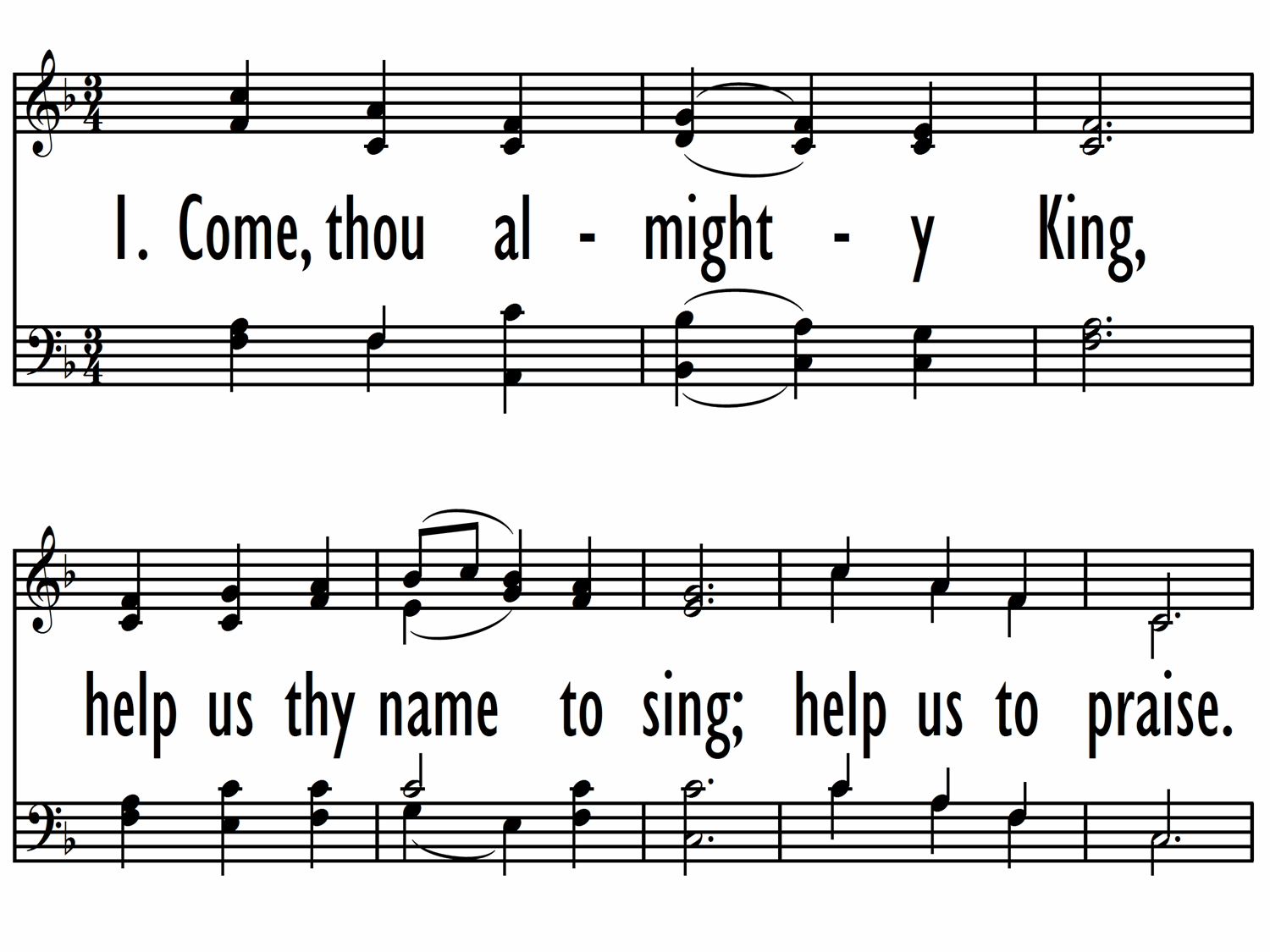- |
User Links
Come, Thou Almighty King
Hymn Information
- First Line
- Come, thou almighty King
- Author
- anonymous (1757, alt.)
- Tune Name
- ITALIAN HYMN
- Composer
- Felice de Giardini (1769)
- Topic
- Church Year: Trinity Sunday · Doxologies · God As: Father · God's: Glory · God as: King · God's: Majesty · Jesus Christ: King · Trinity · Elements of Worship: Opening of Worship: Called And Gathered
Copyright Information
- Text Copyright
- Public Domain
- Tune Copyright
- Public Domain
- Reprint/Projection Information
- Words and Music: The Words and Music are in the Public Domain; you do not need permission to project or reprint the Words and Music.
Full Text
Scripture References
Further Reflections on Scripture References
The text appears to be patterned after the British national anthem, "God Save the King." Filled with names for members of the Godhead, this song exhibits a common trinitarian structure, addressing God the Father (st. 1), God the Son (st. 2), and God the Holy Spirit (st. 3), concluding with a doxology to the Trinity (st. 4).
Confessions and Statements of Faith References
Further Reflections on Confessions and Statements of Faith References
God’s children are called to and gathered to give worship to all three members of the Trinity. Belgic Confession, Article 8, gives the clearest explanation of the three persons of the Trinity, including not only their identity, but also their nature and tasks: “The Father is the cause, origin, and source of all things, visible and invisible. The Son is the Word, the Wisdom, and the image of the Father. The Holy Spirit is the eternal power and might, proceeding from the Father and the Son.”
Heidelberg Catechism, Lord’s Day 8, Questions and Answers 24 and 25 does so in much briefer form. As does the Belhar Confession, Section 1: “We believe in the triune God, Father, Son and Holy Spirit, who gathers, protects and cares for the church through Word and Spirit. This, God has done since the beginning of the world and will do to the end.”
Come, Thou Almighty King
Call to Worship
Additional Prayers
Come, Thou Almighty King
Tune Information
- Name
- ITALIAN HYMN
- Key
- F Major
- Meter
- 6.6.4.6.6.6.4


 My Starred Hymns
My Starred Hymns






